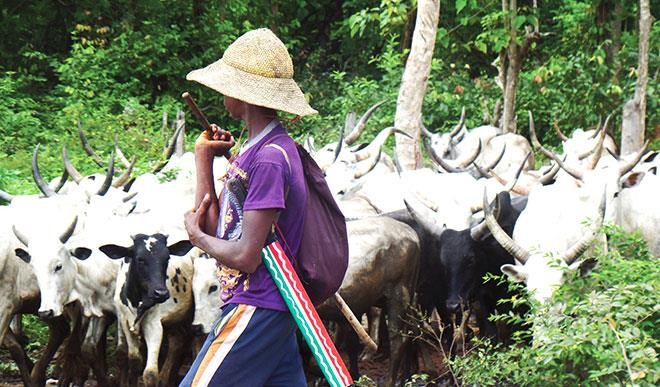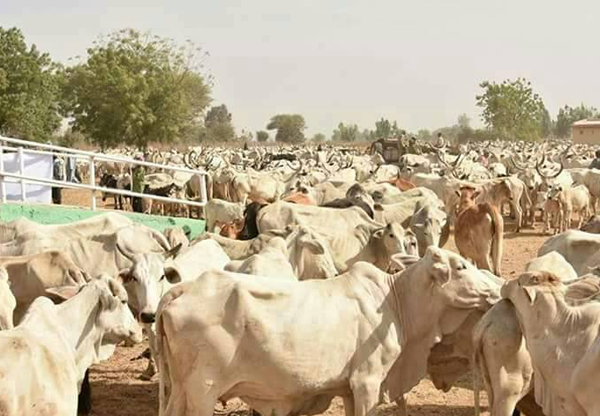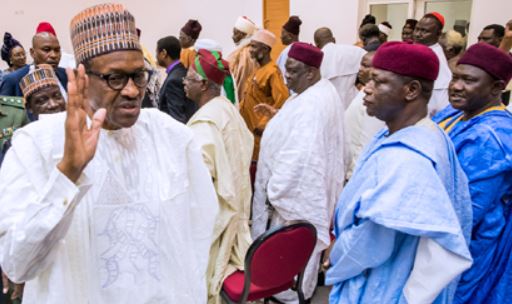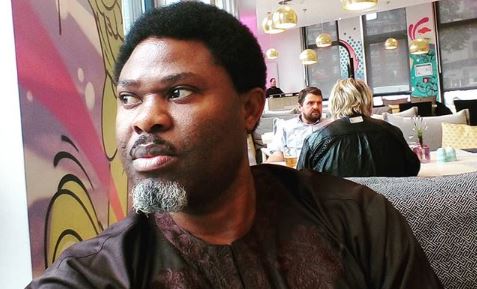BY EMMANUEL ADEYEMO
Recently, the middle belt part of Nigeria has witnessed killings of innocent Nigerians, mainly farmers. These killings stem from the nefarious activities of herdsmen who are nomadic because of the nature of their occupation and are previously known to be peaceful. The activities of herdsmen have raised a considerable security challenge not only in North-Central but also in a handful of areas across Nigeria.
According to media reports, killings associated with herdsmen are estimated to be more than 3000 deaths and at the moment there is no consensus regarding the actual motive for those killings. However, some have attributed the killings to a deep-seated animosity among various communities in the north-central region in which there is a problem of land-owners and settlers. The differences between these groups of people in the past have often led to violent clashes including loss of lives.
For instance, two years ago more than 500 people in Agatu community in Benue state were massacred and their farmlands were confiscated by suspected Herdsmen Militias. Others have also said the recent killings have much to do with the enacted anti-grazing laws in some states in the areas. To buttress this point, according to one of the Governors of one the affected state in his interview with CNN, he said that the Fulani herdsmen had threatened to wipe out the whole state if they did not repeal the law, and allow their cattle to graze wherever they like, they say cattle are more precious than human beings. In turn, the anti-grazing laws have affected the way herdsmen will feed their livestocks in the affected area. Thus seeing that their source of income is at risk, the herdsmen fight back with those killings. According to the secretary of the Miyetti Allah, the umbrella body of herdsmen, Saleh Alhassan, anti-grazing laws are nothing but a populist agenda designed by visionless and desperate politicians to destroy our means of livelihood.
Advertisement
While the reasons adduced for the killings by the herdsmen might be correct to a large extent, the deaths of innocent Nigerians merely exemplify the security challenge currently plaguing the nation. Already, government is still fighting Boko Haram, Islamic insurgents who see western education as a sin and activities connected to western ways of life as un-Islamic. This group has killed many and displaced millions of Nigerians. Government has already claimed that it has defeated Boko Haram and neutralize its activities but recent bombings and incursion into some community tend to suggest that Boko Haram is also still a security threat.
However, Boko Haram and Herdsmen share the same similarity and have same motive: killing of innocent people and in fact, according to recent study conducted by Global Terrorism Index, the Fulani herdsmen undertook more attacks and were responsible for more deaths than Boko Haram since 2016 and of which many of these were in the context of on-going tension between nomadic herders and sedentary farmers.
A further argument made by some other group is that these killings are a form of ethnic cleansing particularly in the north-central region of Nigeria. A former Nigerian chief of Army staff who was also a former federal minister of defence opined that there is an attempt at ethnic cleansing in the state of Taraba and of course on some rural states in Nigeria. A human rights activist on April 25th, 2016 filed a court case of genocide and ethnic cleansing at the International Court of Justice (ICJ) in The Hague and the ECOWAS against Fulani herdsmen for their continued massacres of the innocent people and farmers in Jukunland, in Southern and Central Taraba state, in north-eastern of Nigeria based on what he called compelling evidence put together in a 1000 page document by the leader of the Jukun Development Association of Nigeria this comes with a strong belief by this individual’s that the crisis simply, isn’t about dominating farmlands but about wiping out an entire clan. And as such, the challenge for government is what are being done to stem their activities and not inflame it. Some notable Nigerians have said the security agencies have not lived to their expectations in protecting lives and property.
Advertisement
A handful has said the military is taking sides and as such, they have advocated that communities, where herdsmen killings are rife, should protect themselves else they would be killed. On the contrary such a remedy aside from being ill-informed, it is also a recipe for a huge disaster. Rather, such an advice will rather inflame a tense atmosphere. In the end, many deaths are bound to be recorded. That kind of advice is an ill wind that will bring no benefit to either opposing groups.
Although both positions are strong and compelling it can be seen that these nefarious killings are a reflection of a terrorist organisation within the Fulani Herdsmen and as such, government has to first accept that they are a terrorist organizations and then treat them as a terrorist organisation by using all the mechanism and techniques it uses to tackle terrorism to tackle this issue. Their ways are that of terror, fear, subjugation, manipulation and condemnation and as the United States would define terrorism, it is the calculated use of unlawful violence or threat of unlawful violence to inculcate fear; intended to coerce or to intimidate governments or societies in the pursuit of goals that are generally political, economic, religious or ideological.
Global Terrorism Index puts Nigeria Fulani Militants as the fourth most deadly terror group in the world. This little-known group of individuals from the semi-nomadic pastoral ethnic group exists across West Africa nations and we have witnessed a dramatic escalation of their activities in the past years. As at 2013, Fulani militants killed around 80 people in total, but by 2014 the group had killed over 1200 people. The year 2015-2016 recorded a decrease in terrorist killings across Nigeria with the success of the multinational Joint Task Force comprising Benin, Cameroon, Chad, Nigeria and Niger as well as fractures within the group. According to the Global Terrorism Index, Surprisingly, the Fulani herdsmen undertook more attacks than any other terrorist organisation in Nigeria. In January alone, it was revealed by Amnesty international, that clashes between herdsmen and farmers in Adamawa, Benue, Taraba, Ondo and Kaduna have resulted in 168 deaths in January 2018 alone.
To address this issue, Government needs to first understand that overgrazing can lead to encroachment, which in turn leads to the clashes between herders and farmers. Also, overgrazing and prolonged poorly managed rangelands can also lead to the removal of desirable plant species, decrease water infiltration into soil, increase soil erosion, reduce soil nutrients and alter the plant community composition to a less desirable state leading to land degradation, for this reason, government has to adopt a policy framework that gives Grazing Rights”, which in turn would give rights to herders to allow their livestock to feed (graze) in a given area and protects herders against intimidation, clashes, and deprivation by sedentary cultivators, cattle-ranchers, and commercial intruders. One of the banes of previous policies is the lack of legal validation or legislation on stock routes, the absence of enforceable penalties discourages herders from suing farmers who extend farms into the cattle thoroughfare. This policy would enable government monitor the space in which herders can graze and put an end to the crisis of herders and farmers clashes. Adoption of such policies as being made by countries like, the United Kingdom and the United States of America in order to tackle similar issues of unsettled open lands which causes issues among nomadic herders and sedentary farmers.
Advertisement
The Provost, Federal College of Animal Health and Production Technology, Jos South Local Government Area of Plateau State, Professor Garba Sharubutu, who is also the President, Veterinary Council of Nigeria, has also stressed the need to regulate grazing as a panacea to the recurring herders/farmers clashes in the country, he maintained that as the Federal Government regulates various sectors of the nations economy, it should adopt regulations in grazing activity as seen in other countries so that cattle rearers do not operate without control. The grazing act can help stop injury to the public grazing of lands by preventing overgrazing and soil deterioration, to improvement, and development, to stabilize the livestock industry dependent upon the public range, and for other purposes.
In conclusion, I believe that there is an urgent requirement to investigate the circumstances, strategies, tactics and ultimate objectives of the Fulani herdsmen Militia. It is necessary to identify their motives among which may be reasonably presumed the fueling of the group’s ideology on all the constituents parts of modern Nigeria. Majority of the mindless attacks of the Fulani herdsmen militia are targeted at communities that share dissimilar religion-ethnic and socio-cultural views with theirs. The federal government, therefore, has to identify tactics by which to curb the sporadic growth of a deadly organization that has a motive of destroying lives, properties in order to satisfy their groups ideology.
Adeyemo is a graduate of political science from the University of Ibadan
Advertisement






